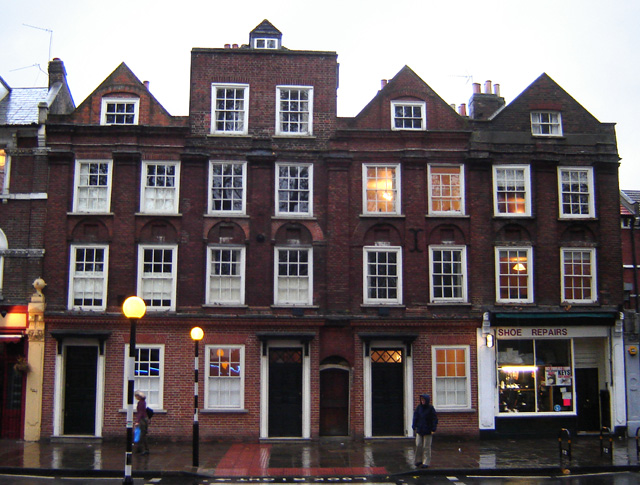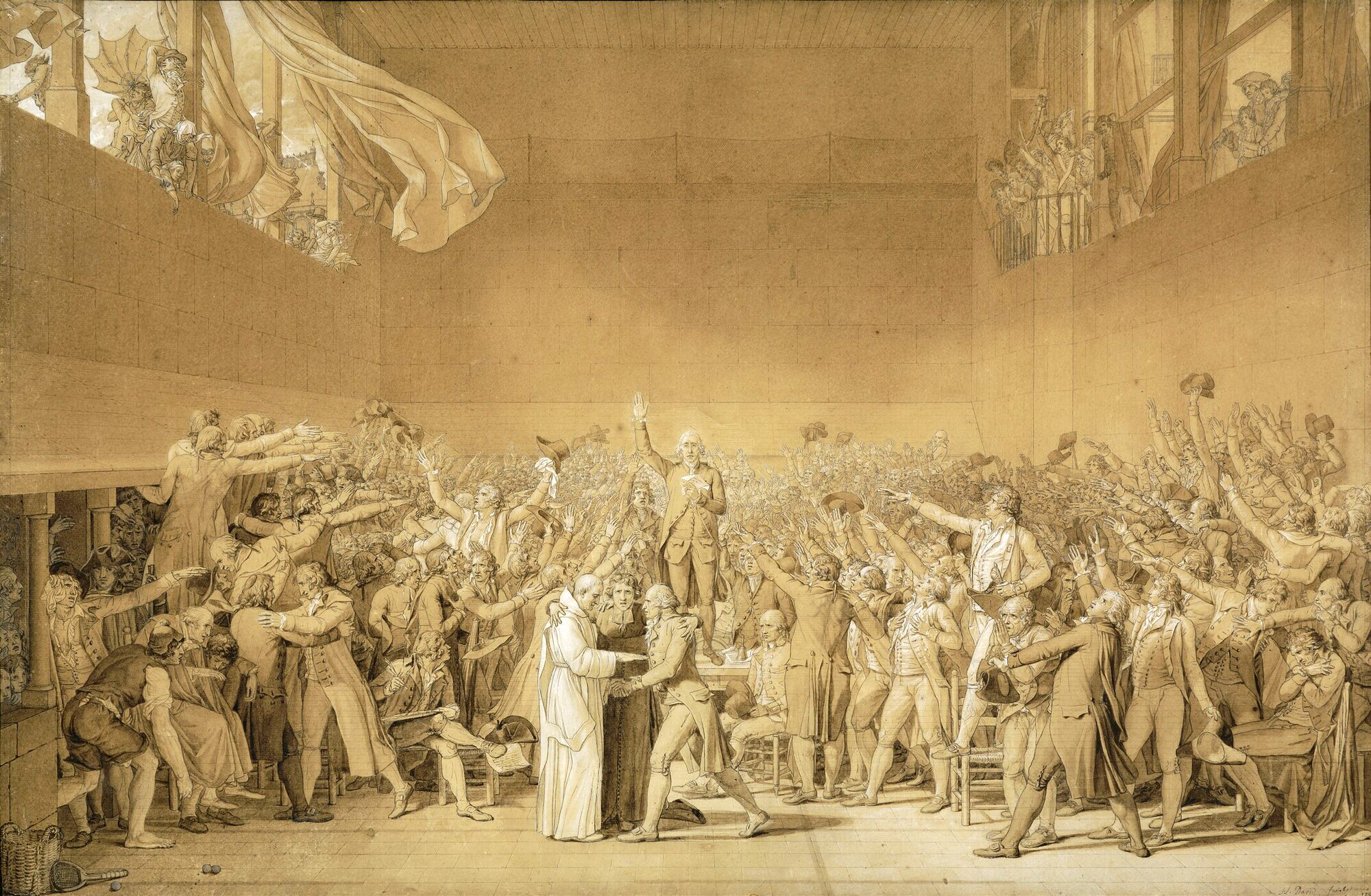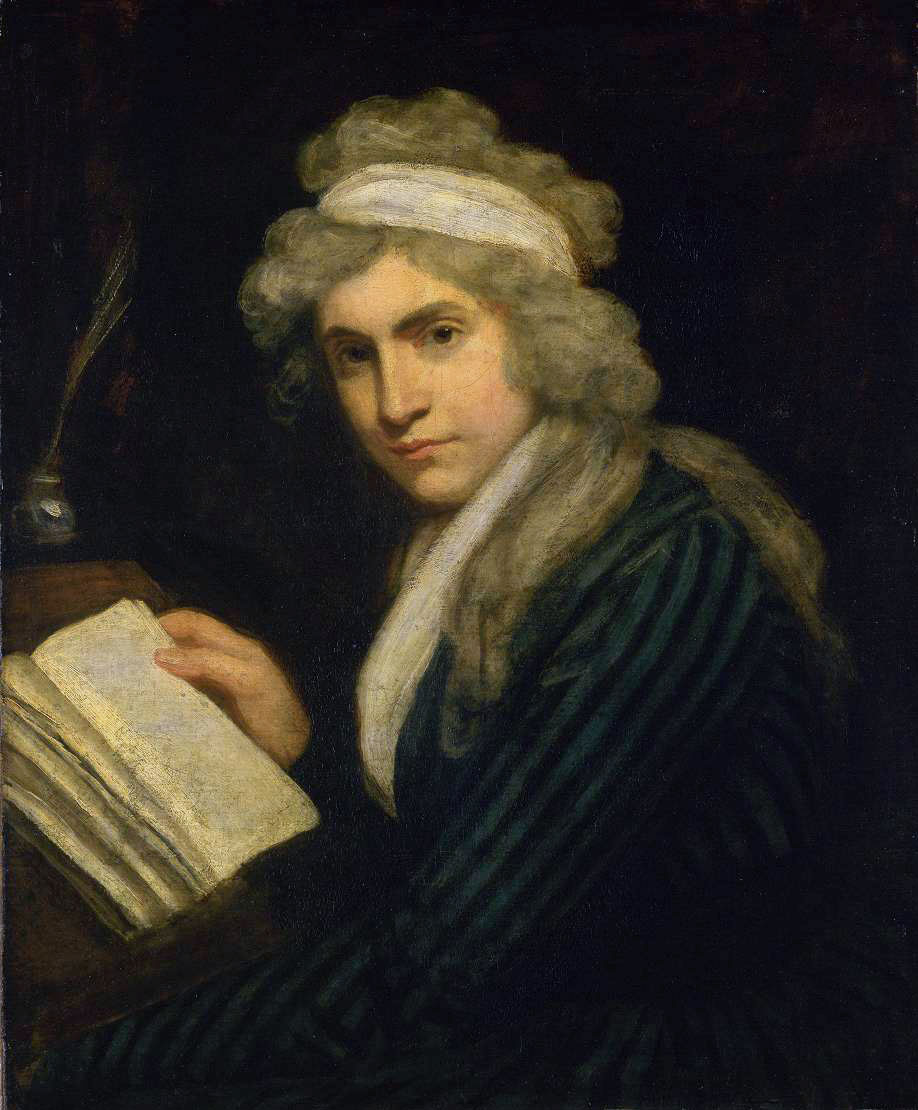|
A Discourse On The Love Of Our Country
''A Discourse on the Love of Our Country'' is a speech and pamphlet delivered by Richard Price in England in 1789, in support of the French Revolution, equating it with the Glorious Revolution a century earlier in England. This set off the Revolution Controversy, an exchange of arguments via pamphlet between those supporting or opposing the idea of the French Revolution. Summary In 1789, moral philosopher and dissenting minister Richard Price was watching the French Revolution, and felt that it was fulfilling prophecies of his millennialist belief that a great change was going to transform humanity. To express this, he wrote a speech, which he delivered to the Revolution Society on 4 November of that year. The Revolution Society had been formed in support of the overthrow of King James II of England, James II a century earlier during the Glorious Revolution and on that date was celebrating the birthday of William III of England, William III, who had been installed as the new king ... [...More Info...] [...Related Items...] OR: [Wikipedia] [Google] [Baidu] |
Richard Price
Richard Price (23 February 1723 – 19 April 1791) was a British moral philosopher, Nonconformist minister and mathematician. He was also a political reformer and pamphleteer, active in radical, republican, and liberal causes such as the French and American Revolutions. He was well-connected and fostered communication between many people, including Thomas Jefferson, John Adams, George Washington, Mirabeau and the Marquis de Condorcet. According to the historian John Davies, Price was "the greatest Welsh thinker of all time". Born in Llangeinor, near Bridgend, Wales, Price spent most of his adult life as minister of Newington Green Unitarian Church, then on the outskirts of London. He edited, published and developed the Bayes–Price theorem and the field of actuarial science. He also wrote on issues of demography and finance, and was a Fellow of the Royal Society. Early life Born on 23 February 1723, Richard Price was the son of Rhys Price, a dissenting minister. Hi ... [...More Info...] [...Related Items...] OR: [Wikipedia] [Google] [Baidu] |
Right To Resist
The right to resist is a nearly universally acknowledged human right, although its scope and content are controversial. The right to resist, depending on how it is defined, can take the form of civil disobedience or armed resistance against a tyrannical government or foreign occupation; whether it also extends to non-tyrannical governments is disputed. Although the distinguished jurist Hersch Lauterpacht called the right to resist the supreme human right, this right's position in international human rights law is tenuous and rarely discussed. Forty-two countries explicitly recognize a constitutional right to resist, as does the African Charter on Human and Peoples' Rights. History According to philosopher Heiner Bielefeldt, "The question of the legitimacy of resistance—including violent resistance—against established authority is as old as political and social thought itself." The right to resist was encoded in the earliest versions of international law and in a variety o ... [...More Info...] [...Related Items...] OR: [Wikipedia] [Google] [Baidu] |
1789 Non-fiction Books
Events January–March * January – Emmanuel Joseph Sieyès publishes the pamphlet '' What Is the Third Estate?'' ('), influential on the French Revolution. * January 7 – The 1788-89 United States presidential election and House of Representatives elections are held. * January 9 – Treaty of Fort Harmar: The terms of the Treaty of Fort Stanwix (1784) and the Treaty of Fort McIntosh, between the United States Government and certain native American tribes, are reaffirmed, with some minor changes. * January 21 – The first American novel, ''The Power of Sympathy or the Triumph of Nature Founded in Truth'', is printed in Boston, Massachusetts. The anonymous author is William Hill Brown. * January 23 – Georgetown University is founded in Georgetown, Maryland (part of modern-day Washington, D.C.), as the first Roman Catholic college in the United States. * January 29 – In Vietnam, Emperor Quang Trung crushes the Chinese Qing forces in ... [...More Info...] [...Related Items...] OR: [Wikipedia] [Google] [Baidu] |
1789 In England
Events January–March * January – Emmanuel Joseph Sieyès publishes the pamphlet ''What Is the Third Estate?'' ('), influential on the French Revolution. * January 7 – The 1788-89 United States presidential election and House of Representatives elections are held. * January 9 – Treaty of Fort Harmar: The terms of the Treaty of Fort Stanwix (1784) and the Treaty of Fort McIntosh, between the United States Government and certain native American tribes, are reaffirmed, with some minor changes. * January 21 – The first American novel, ''The Power of Sympathy or the Triumph of Nature Founded in Truth'', is printed in Boston, Massachusetts. The anonymous author is William Hill Brown. * January 23 – Georgetown University is founded in Georgetown, Maryland (part of modern-day Washington, D.C.), as the first Roman Catholic college in the United States. * January 29 – In Vietnam, Emperor Quang Trung crushes the Chinese Qing forces in Ng� ... [...More Info...] [...Related Items...] OR: [Wikipedia] [Google] [Baidu] |
Christopher Wyvill (reformer)
Christopher Wyvill (1740–1822) was an English cleric and landowner, a political Radicalism (historical), reformer who inspired the formation of the ''Yorkshire Association'' movement in 1779. The American Revolutionary War had forced the government of Lord North to increase taxation. Frustrated with government profligacy, Wyvill and the gentry of Yorkshire called for a package of 'economical reforms': cuts in government spending and sinecure, patronage, annual parliaments and an increase in the number of county seats in parliament. Wyvill's cause was taken up by the Rockingham Whigs, Rockingham Whig opposition, culminating in the carrying of Dunning's motion in 1780. Some moderate reforms were implemented by the Charles Watson-Wentworth, 2nd Marquess of Rockingham, Rockingham-led administration of 1782. William Pitt the Younger raised a number of issues surrounding parliamentary reform in opposition to the Fox-North Coalition in 1783, but his William Pitt the Younger#Early pol ... [...More Info...] [...Related Items...] OR: [Wikipedia] [Google] [Baidu] |
A Vindication Of The Rights Of Woman
''A Vindication of the Rights of Woman: with Strictures on Political and Moral Subjects'' , is a 1792 feminist essay written by British philosopher and women's rights advocate Mary Wollstonecraft (1759–1797), and is one of the earliest works of feminist philosophy. In it, Wollstonecraft responds to those educational and political theorists of the eighteenth century who did not believe women should receive a rational education. She argues that women ought to have an education commensurate with their position in society, claiming that women are essential to the nation because they educate its children and because they could be "companions" to their husbands, rather than mere wives. Instead of viewing women as ornaments to society or property to be traded in marriage, Wollstonecraft maintains that they are human beings deserving of the same fundamental rights as men. Wollstonecraft was prompted to write the ''Rights of Woman'' after reading Charles Maurice de Talleyrand-Péri ... [...More Info...] [...Related Items...] OR: [Wikipedia] [Google] [Baidu] |
Mary Wollstonecraft
Mary Wollstonecraft ( , ; 27 April 175910 September 1797) was an English writer and philosopher best known for her advocacy of women's rights. Until the late 20th century, Wollstonecraft's life, which encompassed several unconventional (at the time) personal relationships, received more attention than her writing. Wollstonecraft is regarded as one of the founding feminist philosophers, and feminists often cite both her life and her works as important influences. During her brief career she wrote novels, treatises, a travel narrative, a history of the French Revolution, a conduct book, and a children's book. Wollstonecraft is best known for ''A Vindication of the Rights of Woman'' (1792), in which she argues that women are not naturally inferior to men but appeared to be only because they lack education. She suggests that both men and women should be treated as rational beings and imagines a social order founded on reason. After two ill-fated affairs, with Henry Fuseli a ... [...More Info...] [...Related Items...] OR: [Wikipedia] [Google] [Baidu] |
A Vindication Of The Rights Of Men
''A Vindication of the Rights of Men, in a Letter to the Right Honourable Edmund Burke; Occasioned by His Reflections on the Revolution in France'' (1790) is a political pamphlet, written by the 18th-century British writer and women's rights advocate Mary Wollstonecraft, which attacks aristocracy and advocates republicanism. Wollstonecraft's was the first response in a pamphlet war sparked by the publication of Edmund Burke's ''Reflections on the Revolution in France'' (1790), a defense of constitutional monarchy, aristocracy, and the Church of England. Wollstonecraft attacked not only hereditary privilege, but also the rhetoric that Burke used to defend it. Most of Burke's detractors deplored what they viewed as his theatrical pity for Marie Antoinette, but Wollstonecraft was unique in her love of Burke's gendered language. By saying the '' sublime'' and the ''beautiful'', terms first established by Burke himself in ''A Philosophical Enquiry into the Origin of Our Ideas of ... [...More Info...] [...Related Items...] OR: [Wikipedia] [Google] [Baidu] |
Thomas Paine
Thomas Paine (born Thomas Pain; – In the contemporary record as noted by Conway, Paine's birth date is given as January 29, 1736–37. Common practice was to use a dash or a slash to separate the old-style year from the new-style year. In the old calendar, the new year began on March 25, not January 1. Paine's birth date, therefore, would have been before New Year, 1737. In the new style, his birth date advances by eleven days and his year increases by one to February 9, 1737. The Old Style and New Style dates, O.S. link gives more detail if needed. – June 8, 1809) was an English-born American Founding Fathers of the United States, Founding Father, French Revolutionary, inventor, and political philosophy, political philosopher. He authored ''Common Sense'' (1776) and ''The American Crisis'' (1776–1783), two of the most influential pamphlets at the start of the American Revolution, and he helped to inspire the Colonial history of the United States, colonial era Patriot ... [...More Info...] [...Related Items...] OR: [Wikipedia] [Google] [Baidu] |
William Coxe (historian)
William Coxe (8 June 1828) was an English historian and priest who served as a travelling companion and tutor to nobility from 1771 to 1786. He wrote numerous historical works and travel chronicles. Ordained a deacon in 1771, he served as a rector and then archdeacon of Bemerton near Salisbury from 1786 until his death. Biography William Coxe was born on in Dover Street, Piccadilly, London, the eldest son of William Coxe (c. 17101760), a physician to the king's household, and his wife, Martha, daughter of Paul D'Aranda. He was the older brother of the writer and poet Peter Coxe (c. 1753–1844), who wrote the poem "Social Day". Following his father's death in 1760, his mother married John Christopher Smith, who was Handel's amanuensis. Educated at Marylebone Grammar School (1753–54) and then at Eton College (1754–64), Coxe matriculated to King's College, Cambridge at Easter 1765. He received his BA in 1769, and his MA in 1772. From 1768 to 1771, he was a fellow of King ... [...More Info...] [...Related Items...] OR: [Wikipedia] [Google] [Baidu] |








